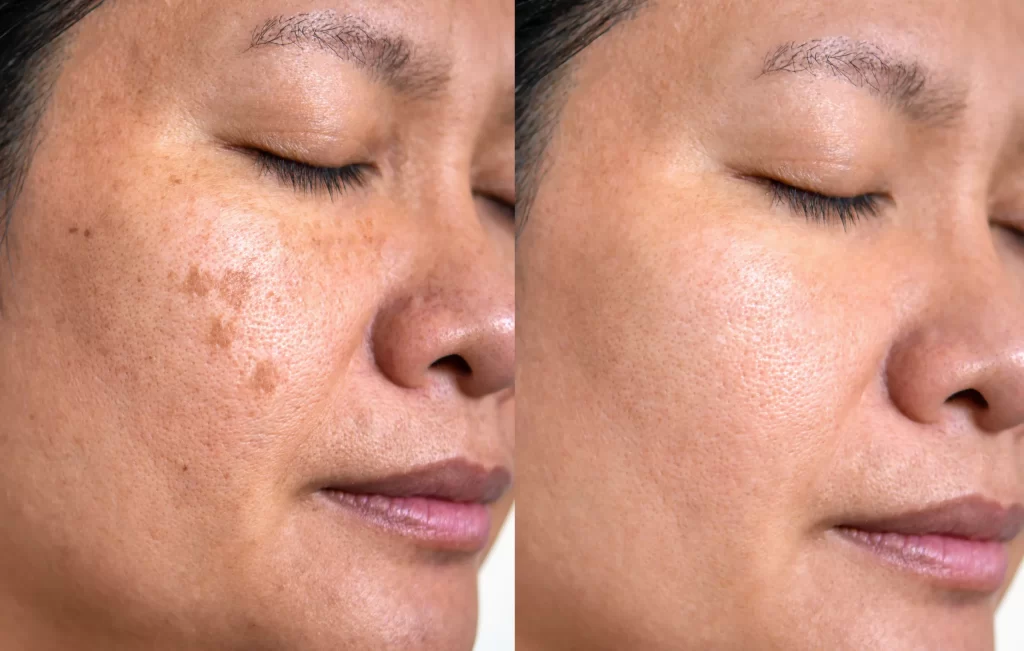Melasma Treatment in Pune

Melasma treatment typically focuses on lightening dark patches and preventing recurrence. Since melasma is often chronic and recurring, treatment requires consistent care and sun protection
Melasma is a widespread skin condition that results in brown patches or discoloration, most often appearing on the face. It predominantly affects women, especially during pregnancy or when using hormonal birth control. While melasma isn’t dangerous, it can be a major cosmetic concern. Effectively addressing it involves understanding its underlying causes, recognizing the symptoms, and exploring the available treatment options.
Melasma is a widespread skin condition that results in brown patches or discoloration, most often appearing on the face. It predominantly affects women, especially during pregnancy or when using hormonal birth control. While melasma isn't dangerous, it can be a major cosmetic concern. Effectively addressing it involves understanding its underlying causes, recognizing the symptoms, and exploring the available treatment options.
Melasma is a chronic form of pigmentation in the skin that appears as spots or blotches. It can start in the early 20s and last up to your 40s. Usually seen in more women than men, it can make the skin sensitive to the Sun due to the overproduction of melanin by the pigment cells(melanocytes) during sun exposure. Melasma on the skin can be of the following types: Epidermal melasma has a well-defined border & it is in dark brown color. This melasma responds very good to the line of treatment. Dermal Melasma, is located in the dermis of skin & has faded borders.
Melasma is a common skin condition that occurs mostly in women, especially during pregnancy. It appears as coloured spots or blotches on the skin and occurs due to the overproduction of melanin. It can also be caused due to sun exposure, climate changes and could also be hereditary in a few people.
Despite the reason for its occurrence, it needs to be brought under control through various types of treatment methods including laser treatments, chemical peels, along with topical applications and oral medications. This skin condition takes almost 4-6 months to fade but may differ from person to person. Around 60% of patients get promising results from the first day of treatment. 20% take a gradual pace in showing improvements whereas the remaining 20% don’t show any improvements at all. It takes about 5 to 6 sessions of treatment to determine whether the melasma condition is responding to the treatment.
Other Service
At We Heal Clinic, we provide targeted solutions for all types of skin Care
Take the First Step to Better Health Today
Book your consultation now and start your journey toward a confident, glowing you.

